Champions of Change Blog
Leveraging Technology to Deliver to Prepare Rural Students for 21st Century Jobs
Posted by on September 30, 2011 at 1:04 PM EDTEd. Note: Champions of Change is a weekly initiative to highlight Americans who are making an impact in their communities and helping our country rise to meet the many challenges of the 21st century.
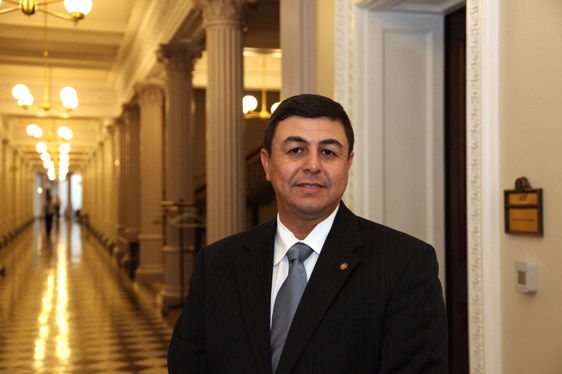
Southwest Texas Junior College has addressed one of the main issues facing rural colleges—distance. We have responded to the healthcare needs of our area hospitals specifically in the area of vocational nurses, registered nurses, and radiologic technicians, by utilizing technology and creative partnerships. We utilize interactive television to broadcast lectures across our vast service area which is larger than 10 states.
Technology has enabled us to provide quality healthcare education to a student population that otherwise would not have had convenient and ready access to this type of instruction. In addition, we have invested in realistic, full-body adult, wireless patient simulators that can reproduce complex diseases that students may not have an opportunity to experience in rural hospitals. SWTJC has partnered with area hospitals to train their employees as preceptors to assist with the supervision of the students during their clinical rotations.
Southwest Texas Junior College has developed 1+1 programs in career and technology fields with area high schools. High school junior and seniors can enroll and complete the first year of a technical program, graduate high school with a diploma along with a one year certificate. After graduation they can enroll in the second year of the technical program as a sophomore and within one year complete their associate of applied science. This partnership has allowed our career technology minded students to enter the workforce at a much quicker pace, with a certificate and or associate’s degree.
Dr. Hector Gonzales is Chief Academic and Financial Officer of Southwest Texas Junior College.
Learn more about EducationPartnering with Public Schools and the Community
Posted by on September 29, 2011 at 6:15 PM EDTEd. Note: Champions of Change is a weekly initiative to highlight Americans who are making an impact in their communities and helping our country rise to meet the many challenges of the 21st century.
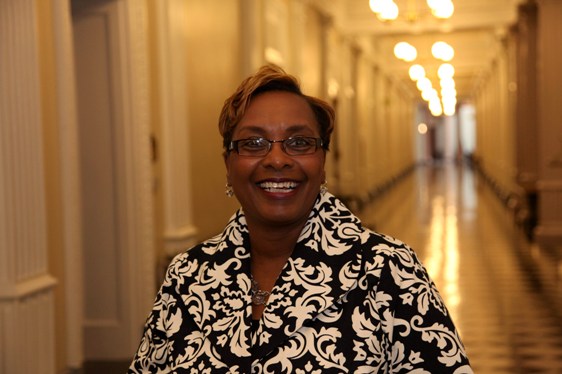
Community colleges across the nation have catapulted into the limelight as a major sector of the higher education landscape. We share a common mission of access and a commitment to student success and completion. We, at Prince George’s Community College, are honored to have been chosen as a ‘Champion of Change’ because of our focus on our mission - to transform the lives of the more than 40,000 diverse students whom we serve.
We open our doors to thousands of students and recently have been acknowledged for our commitment to providing students with a quality education by welcoming 100 rising ninth graders to the Academy of Health Sciences at Prince George’s Community College, the first middle college high school in the state of Maryland. These students, who will be joined each year by another class of ninth graders in the creation of a full high school program of grades 9-12, will realize their dreams and graduate with a high school diploma and an associate’s degree simultaneously; the Class of 2015 will be the first!.
Through a strong partnership with the Prince George’s County Public Schools, the Academy of Health Sciences at Prince George’s Community College was born and unveiled earlier this year. Its opening is evidence that despite the economic challenges of today, our public school and college leaders are facilitating learning in transformational ways for tomorrow’s leaders as one solution to global competitiveness in the decades ahead.
There is another idea central to the creation of the Academy of Health Sciences at Prince George’s Community College – and that is if we believe in seamless learning and a true Pre-K through 20 system of providing access to support an educated citizenry with degrees and credentials, then institutions of learning can no longer exist in a vacuum in our society. We need students to be able to dream beyond the boundaries of their schools, beyond the limits of their neighborhoods, and beyond the shores of this country. They must view themselves and their learning as part of a much larger world. We live in an age of interconnectedness, where technology and the global village allows access to information at a rate faster than any time in human history. We must give students the tools to critically analyze that information, make judgments, draw conclusions and join the debate as informed and impassioned citizens of this country and our world. Our students in the Academy are understanding that learning is not limited by the walls of the school or the hours of the school day, but rather that it is a lifelong, 24/7/365 endeavor.
Prince George’s Community College is dedicated to education and committed to student success and completion. The college’s strategic plan is focused on increasing graduation rates in a rigorous, standards-based environment through a formal pledge of completion that reflects national and statewide efforts to boost the number of graduates and meet the goals issued by President Obama and his administration. To that end, the college has embarked on a completion agenda, known as Envision Success, which is geared toward ensuring students are successful and that they receive degrees, certificates, and certifications as part of their educational objectives.
A great example of how we prepare students to become leaders is evident in our national recognitons. Prince George’s Community College has been named a National Center of Academic Excellence in Information Assurance Two-year Education by the National Security Agency and the Department of Homeland Security for academic years 2010 through 2015, and Community College Week recently named Prince George’s Community College one of the 50 fastest-growing public two-year colleges in the nation.
The college's real strength rests in its people – faculty, staff, and administrators who dedicate themselves daily to responding to students’ intellectual and professional needs. All of what is accomplished here would not be possible without them. They are the real Champions!
Dr. Charlene M. Dukes is the eighth president, and first female president, of Prince George’s Community College and has more than thirty years of progressive leadership experience and administrative responsibility in higher education.
Learn more about EducationDelivering on the American Dream for Students from All Walks of Life
Posted by on September 29, 2011 at 5:15 PM EDTEd. Note: Champions of Change is a weekly initiative to highlight Americans who are making an impact in their communities and helping our country rise to meet the many challenges of the 21st century.
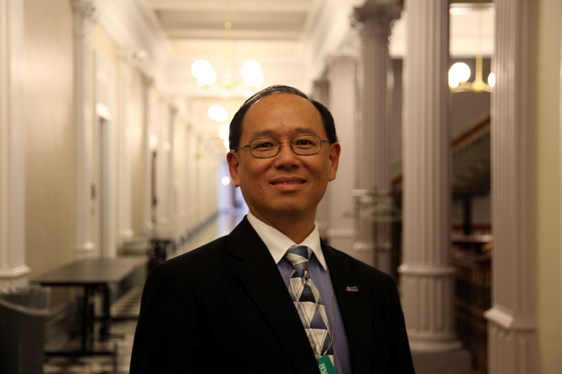
Northeast Iowa Community College (NICC) serves a 4,800-square-mile district that is mostly rural in northeast Iowa, bordering Minnesota, Wisconsin, and Illinois. NICC offers more than 90 diploma, degree, and certificate programs to a socioeconomically and academically diverse student population; additionally, we provide non-credit training and employer-recognized credentials to over 35,000 individuals yearly. On an annual basis, we serve 1 out of every 4 residents aged 18-65, a statistic that puts NICC in the 96th percentile nationwide.
As a Champion of Change and a finalist in the Aspen Prize for Community College Excellence, NICC is most proud of our comprehensive system of student advising, continuous improvement in developmental education, attentive service to students with disabilities, and meeting the needs of the labor market. In order for our students to compete in the market place, we are determined to help them complete their program of study.
On September 21, the discussion facilitated by Director Melody Barnes, Assistant Secretary Brenda Dann-Messier, Assistant Secretary Jane Oates, and Deputy Assistant Secretary Frank Chong affirmed the important link between economic competitiveness and education and the central role of community colleges in providing skilled labor to the business community. In order to succeed as a nation, more of our students must pursue and complete post-secondary education and understand that career and technical education is a viable option for them. The discussion focused on the importance of timely and adequate funding from the state and federal government to support increased developmental and remedial education, student advising and support services and curriculum development in high-growth, high-wage industries.
Over the past several years, NICC has worked hard on its student completion and retention goals. As a result, approximately two-thirds of our full-time students completed a program, transferred to another institution, or remain enrolled, and our graduation rates are 24 percent above the national averages. These figures are especially positive in light of the fact that 93% of students tested at least one course-level below college level in at least one subject area. We attribute this to availability of relevant programs, and engaging and retention efforts that focus on the individual student and strong connections to business and industry.
To date, NICC has fundamentally restructured how it delivers student services: a) frontloading student interventions and services during the critical first six weeks based on our SENSE survey and participation in the ESSI Institute, b) implementing a holistic advising model requiring every student to meet with an advisor every term, c) developing an improved new student orientation and an online mode of delivery, d) providing regular advisor professional development opportunities, e) growing the Student Life Office through student government, a focus on service learning, and popular student activities, f) establishing student crises funds through annual fundraisers to financially assist students through short-term crises that would otherwise impede them from continuing education, and g) implementing LEAN office processes to remove barriers in student engagement (e.g., offering walk-in advising services) and h) implementing an Adult Transition Office that provides one-on-one individualized assistance and career advising to the over 25 population, late career changers, or women/men pursuing nontraditional careers. In addition, our Office of Disability Services assists each qualifying student with individualized planning, coordination, and implementation of services which may include personal and vocational counseling, training, and job placement services.
NICC also convened a task force (comprised of the provost, faculty, staff, students) to fundamentally restructure the delivery of developmental education that would not only affect the approximately 15% of the student body enrolled in developmental education courses, but also the nearly 90% that test below college level. As a result of the task force, NICC has instituted the following changes: a) piloting of a contextualized learning model based on Washington State’s I-BEST program, b) revamping of peer tutoring programs on both campuses, c) increasing writing brush-up courses, d) providing learning strategies workshop and computerized support, e) updating accommodative software for students with disabilities, and f) nurturing of the Support Through the Encouragement of Peers (STEP) program that provides academic, personal, and social support to students with disabilities by their peers.
NICC’s credit programs as well as our Continuing Education and Economic Development rely on labor market data, Iowa Workforce Development reports, local business surveys, business roundtables, alumni surveys, and advisory boards to develop programs that are responsive to workforce need. These efforts have led to a slate of new green energy, IT and advanced manufacturing credit and non-credit programs, a non-credit leadership certificate program for soft skills training, and a business consortium that allows small businesses to pool resources together to offer joint trainings. Both the vice president of academic affairs and the vice president of economic development are actively partnering in developing programs where career ladders are emphasized, partnerships are pursued, and multiple degree pathways are offered.
NICC prides itself on its connections to business and industry. As a result, the college has recently created some very strong agriculture and renewable energy programs in direct response to workforce need including Wind Turbine Repair Technician program, “Green Jobs” non-credit training, Gas Utilities Construction and Service, Chemical Technician program, and Large Animal Veterinary Technician program. It has established national centers of excellence, such as the Northeast Iowa Dairy Center, the National Agricultural Center for Agriculture Safety, and Iowa’s only Regional Academy for Math and Science (RAMS). In addition, NICC is the only community college in the state to have two professors named Iowa Professor of the Year by Carnegie Foundation for the Advancement of Teaching/Council for the Advancement and Support of Education (CASE).
While NICC’s achievements to date are notable, the college has no doubt its best years are yet to come. We are committed to improving student learning outcomes. NICC is also cognizant of the growth of online education and continues to develop hybrid and fully online programs as appropriate; currently, 20 programs are completely online. Increasing the use of third party assessments, such as through the National Career Readiness Certification (NCRC), the Comprehensive Adult Student Assessment System (CASAS) basic skills assessment, and other industry-recognized assessments will further validate NICC’s student learning outcomes and meeting labor market demands.
Dr. Liang Wee is President of Northeast Iowa Community College
Learn more about EducationHelping Students Rise to Meet the Challenges of the 21st Century
Posted by on September 29, 2011 at 3:48 PM EDTEd. Note: Champions of Change is a weekly initiative to highlight Americans who are making an impact in their communities and helping our country rise to meet the many challenges of the 21st century.
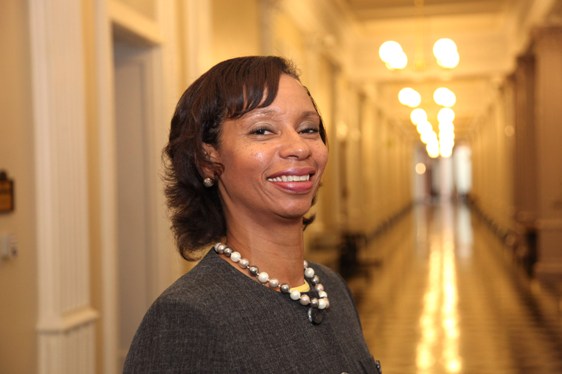
As Vice President of Academics, I had the honor of filling in for our President, Dr. Odell M. Owens, at the White House roundtable discussion Sept. 21 on the role of community colleges in workforce development and economic recovery. Cincinnati State has a clear emphasis on quality academics and creating pathways to employment for our community. We use strategic partnerships to create synergies that have broad based impact. Some examples follow:
- Cincinnati State and the Warren County Career Center are partnering to help students interested in careers in the electric power industry. The two institutions will offer “One Plus One” programs that marry the WCCC’s career training programs in advanced electrical occupations with those at Cincinnati State leading to an Associate of Technical Studies degree in electrical power technology.
This opens not only a pathway to traditional jobs, such as a lineman or technician, but also to opportunities in the growing renewable energy industry and in evolving areas within the utility industry. (Cincinnati State, for example, offers a degree in “Smart Grid” technologies.) The Ohio River Valley is in the heart of the nation’s power generation corridor. For those who successfully complete the program, we estimate the job placement rate will be above 90 percent.
- Cincinnati State joined 16 other community colleges across the Midwest in launching an innovative series of courses involving health information technology. It’s part of the effort to implement an electronic health records system in the United States that was incorporated into the health reform bill passed by Congress last year and signed into law by President Obama. We will recruit and train hundreds of HIT professionals annually over the next three years. The coursework is online, and we are working on an associate degree for individuals to continue their studies.
- On Saturday, Sept. 24, I had the pleasure of attending the ribbon-cutting ceremony for the Greentree Health Science Academy. The Academy is an innovative public/private collaboration including Atrium Medical Center, Miami University, Warren County Career Center, and Cincinnati State. The City of Middletown and State of Ohio were involved in securing financing for the project. The new state-of-the-art educational facility on a medical center campus will allow us to connect programs that range from high school studies to industry credentialing, from Associate to Bachelor Degree levels.
The Greentree Academy will help students achieve their career goals cost-effectively and conveniently, and in manageable steps that fit their busy lives. Cincinnati State’s initial opening of a Paramedic Certificate program there is just the first phase of other degree programming planned for the Academy. Discussions are currently underway for a nursing pathway.
- In my remarks during the White House roundtable, I mentioned Cincinnati State’s STEM partnership with Cincinnati Public Schools and other high schools in our region. This program is bringing talented inner-city and suburban students into our labs and classrooms for shared experiences and interactions with some of our best faculty members. They leave not only with college credit, but often a sense of excitement about math, science and other essential subjects.
- In my remarks I also noted a recent initiative the led Cincinnati State and the Great Oaks Career Campuses to consolidate their practical nursing programs. The result: students now have improved access to a seamless program that allows us to offer courses at suburban locations throughout Greater Cincinnati that are taught by our instructors and which are fully integrated into our overall curriculum.
As you see, Cincinnati State is on the move. We are a dedicated example of an institution making an impact within our community while helping our country rise to meet the many challenges of the 21st century. We appreciate the opportunity to share our story.
Dr. Monica Posey is the Vice President for Academics at Cincinnati State Technical and Community College.
Learn more about EducationInnovating Pathways for Equal Access to Education
Posted by on September 28, 2011 at 6:59 PM EDTEd. Note: Champions of Change is a weekly initiative to highlight Americans who are making an impact in their communities and helping our country rise to meet the many challenges of the 21st century.
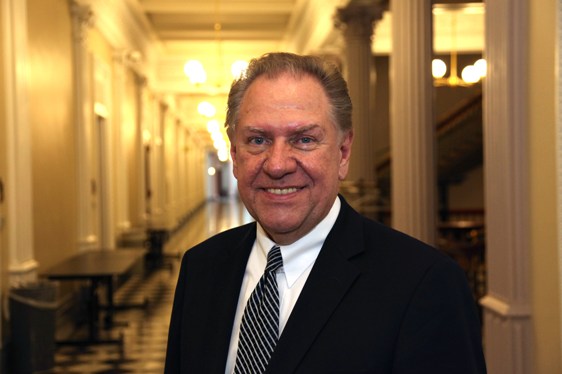
Last week, I had the great opportunity to join 15 other colleagues from around the country as Champions of Change within the community college sector. It was a great honor to be selected to represent Mott Community College, immediately following our selection as one of ten finalists for the Aspen Prize for Community College Excellence.
The Champions of Change roundtable discussion that I participated in was exhilarating and full of promising new ideas about how to improve the community college sector for the benefit of some of our most vulnerable citizens who are seeking a better life for themselves and their families. I was particularly impressed with some of the specific programs highlighted by my colleagues that had been developed to ensure that students were prepared and connected to real jobs within their communities. I am bringing back home to Mott many of these examples that I will share with my administrators, faculty and staff. I was also reminded that the challenges we grapple with, such as the high number of students in need of developmental education, are not exclusive to MCC; many of the other colleges continue to face this issue, and I appreciate opportunities for us to learn from each other about approaches that have worked and those that have failed.
Learn more about EducationMeeting the Challenges of Today’s Global Knowledge Economy
Posted by on September 28, 2011 at 5:02 PM EDTEd. Note: Champions of Change is a weekly initiative to highlight Americans who are making an impact in their communities and helping our country rise to meet the many challenges of the 21st century.
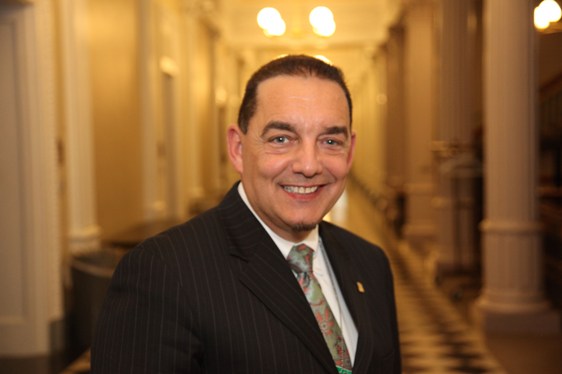 Throughout its history, Miami Dade College (MDC) has been recognized by the nation’s top organization as a national model of academic excellence and student success, in a region with many challenges. Often dubbed "democracy’s college," it was recently named as one of the ten finalist community colleges by the Aspen Institute’s Community College Excellence Program, qualifying for a $1 million prize fund that will be awarded in December to the first-ever national winner and up to three runners-up. MDC was honored for its learning outcomes, college completion, labor market outcomes and other attributes.
Throughout its history, Miami Dade College (MDC) has been recognized by the nation’s top organization as a national model of academic excellence and student success, in a region with many challenges. Often dubbed "democracy’s college," it was recently named as one of the ten finalist community colleges by the Aspen Institute’s Community College Excellence Program, qualifying for a $1 million prize fund that will be awarded in December to the first-ever national winner and up to three runners-up. MDC was honored for its learning outcomes, college completion, labor market outcomes and other attributes.MDC provides high-quality teaching and learning experiences that are accessible and affordable to meet the needs of its diverse students and prepare them to be responsible global citizens and lifelong learners. MDC enrolls 174,000 students: 69% are Hispanic, 19% black non-Hispanic, 8% white non-Hispanic, and 76% low-income, with an average age of 26. It offers more than 300 programs of study, including career training, associate, and baccalaureate degree options that support workforce needs and put graduates in jobs. MDC also features numerous acclaimed continuing education classes, a Virtual College, the renowned New World School of the Arts, a trailblazing Honors College, and other innovative programs. Over the past sixteen years, MDC’s President, Dr. Eduardo J. Padrón has engineered this culture of success at the College that has produced impressive results in student access, retention, and graduation.
Learn more about Education
- &lsaquo previous
- …
- 155
- 156
- 157
- 158
- 159
- 160
- 161
- 162
- 163
- …
- next &rsaquo
White House Blogs
- The White House Blog
- Middle Class Task Force
- Council of Economic Advisers
- Council on Environmental Quality
- Council on Women and Girls
- Office of Intergovernmental Affairs
- Office of Management and Budget
- Office of Public Engagement
- Office of Science & Tech Policy
- Office of Urban Affairs
- Open Government
- Faith and Neighborhood Partnerships
- Social Innovation and Civic Participation
- US Trade Representative
- Office National Drug Control Policy
categories
- AIDS Policy
- Alaska
- Blueprint for an America Built to Last
- Budget
- Civil Rights
- Defense
- Disabilities
- Economy
- Education
- Energy and Environment
- Equal Pay
- Ethics
- Faith Based
- Fiscal Responsibility
- Foreign Policy
- Grab Bag
- Health Care
- Homeland Security
- Immigration
- Innovation Fellows
- Inside the White House
- Middle Class Security
- Open Government
- Poverty
- Rural
- Seniors and Social Security
- Service
- Social Innovation
- State of the Union
- Taxes
- Technology
- Urban Policy
- Veterans
- Violence Prevention
- White House Internships
- Women
- Working Families
- Additional Issues

